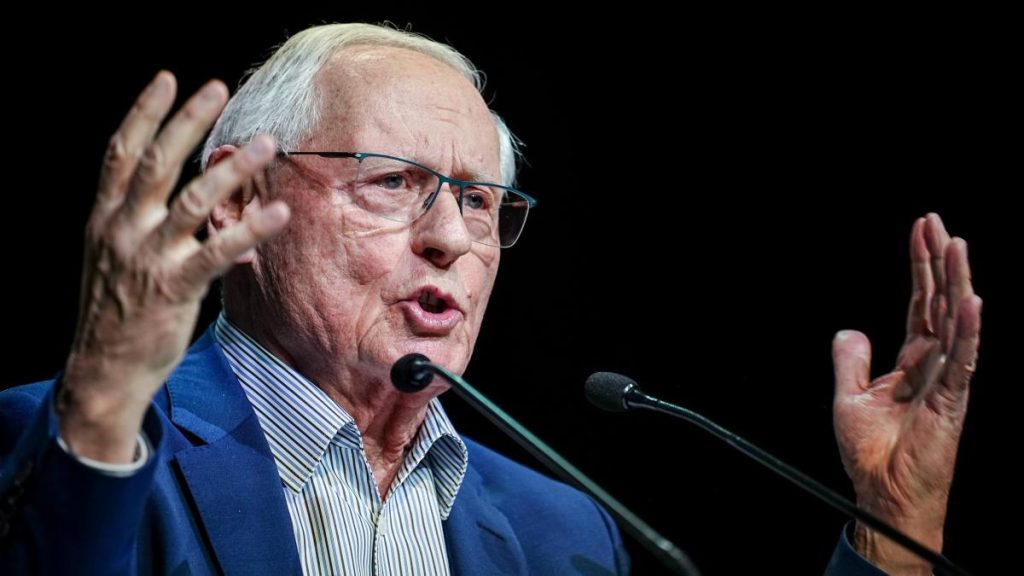Oskar Lafontaine has voiced support for freezing the Ukraine war, aligning himself with SPD parliamentary group leader Rolf Mützenich. He criticized the German government, particularly Annalena Baerbock, for her role in the conflict. Lafontaine emphasized the need to find a way to end the war rather than just discussing how to conduct it. He expressed disappointment in Chancellor Olaf Scholz, stating that Scholz lacks a sense of the German-French axis.
However, Lafontaine reserved his harshest criticism for Foreign Minister Annalena Baerbock, accusing her of causing significant damage to German interests on the world stage. He described her as wasteful, ineffective, and prone to blunders in international affairs. Lafontaine, a former SPD leader, co-founded the first red-green coalition at the federal level in 1998 and briefly served as Finance Minister under Chancellor Gerhard Schröder. He later shifted towards left-wing politics and is now a member of the newly formed Sahra Wagenknecht Alliance. Lafontaine now regrets having a naive view of the Greens during his time in the red-green coalition, believing they would oppose Germany’s involvement in the Yugoslavia war.
Lafontaine’s criticism of the government’s handling of the Ukraine war comes at a time when tensions between Russia and Ukraine are escalating. His alignment with Mützenich’s call for a freeze on the conflict highlights growing dissent within Germany’s political landscape regarding the handling of the crisis. Lafontaine’s past experiences in government and his current position within the BSW give weight to his statements, adding an important perspective to the ongoing debate on foreign policy and conflict resolution.
The former SPD leader’s critique of Scholz and Baerbock may resonate with some Germans who are disillusioned with the current government’s foreign policy decisions. Lafontaine’s pointed remarks about Baerbock’s actions on the international stage and her perceived negative impact on German interests could potentially influence public opinion about her effectiveness as Foreign Minister. Additionally, Lafontaine’s candid reflections on his past political alliances and his changing views on the Greens offer insights into the complexities of coalition politics and the challenges of maintaining ideological consistency in a shifting political landscape.
Overall, Lafontaine’s comments reflect broader concerns within Germany about the country’s role in international conflicts and the government’s approach to diplomacy. His call for ending the Ukraine war and his criticisms of key political figures demonstrate the ongoing debate within the country about its foreign policy direction. As tensions continue to escalate in Eastern Europe, voices like Lafontaine’s contribute to a multifaceted discussion on how Germany should navigate its relationships with global partners and uphold its national interests in a rapidly changing geopolitical environment.


